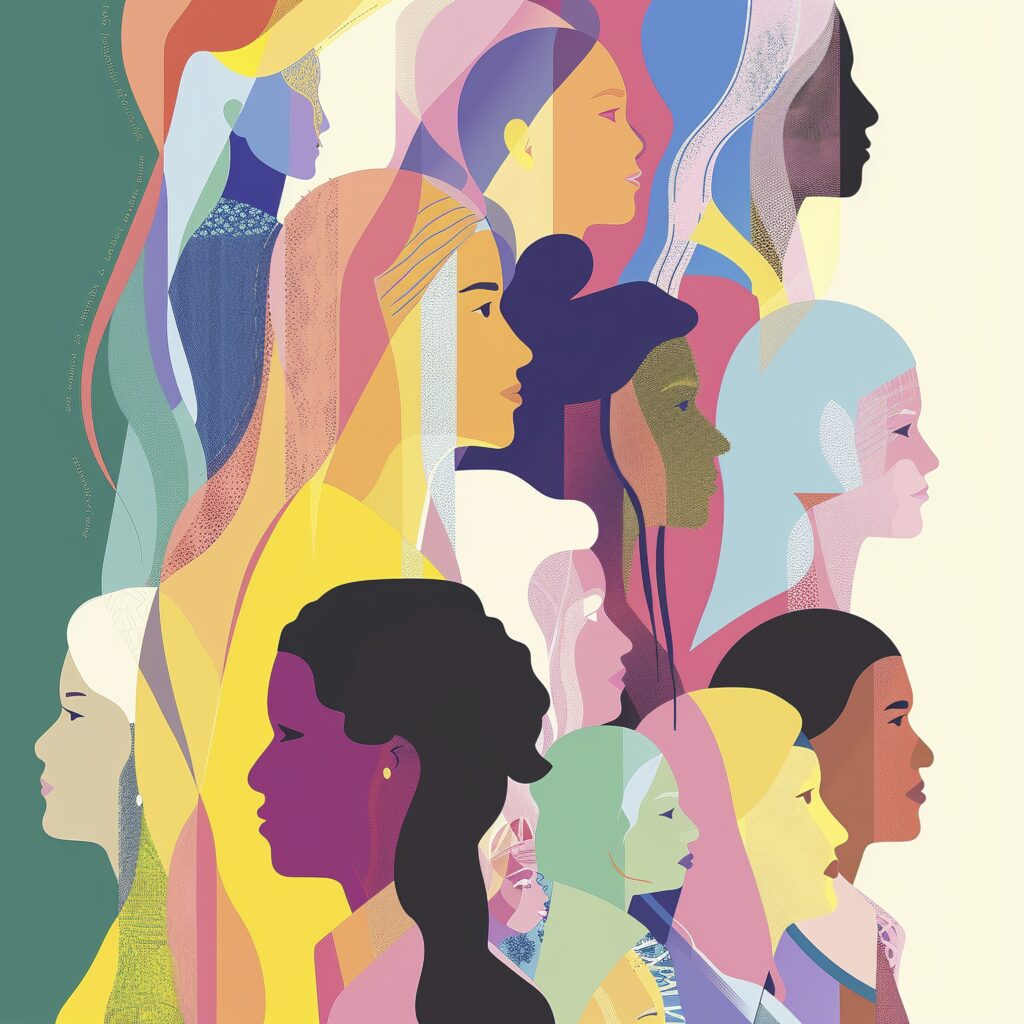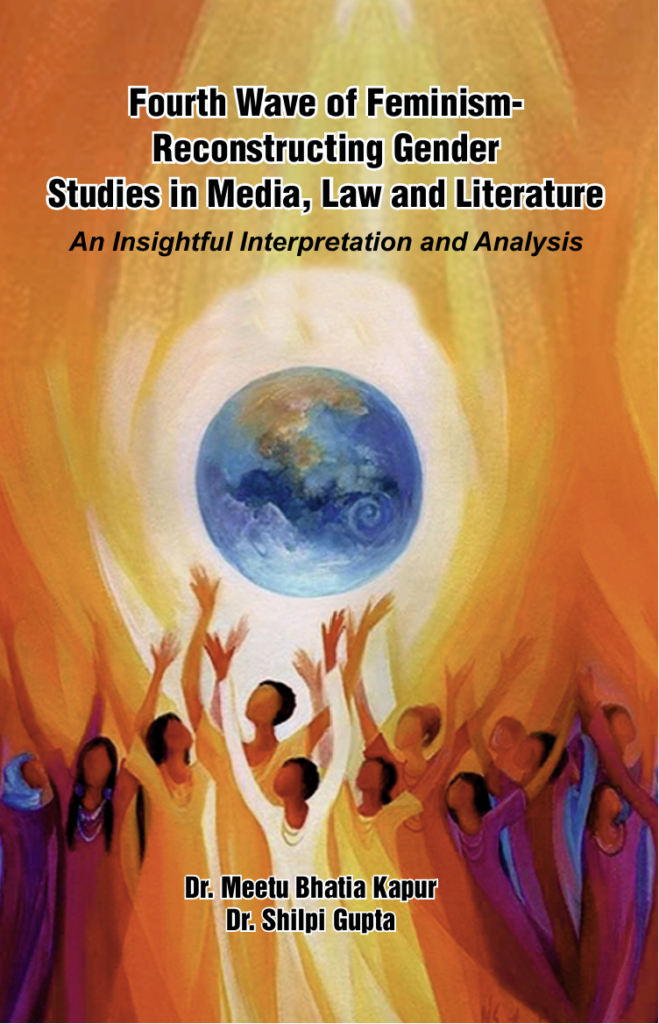Table of Contents
Toggle
Feminism has grown through several waves, each bringing new problems and triumphs to the fore. The fourth wave of feminism is no different. This modern movement is reinventing gender studies across numerous areas, including media, law, and literature. By embracing new modes of communication and tackling current concerns, the fourth wave is redefining how society views and interacts with gender. Let’s delve into the intricacies of this disruptive wave and study its impact on media, law, and literature.
Feminism has grown through several waves, each bringing new problems and triumphs to the fore. The fourth wave of feminism is no different. This modern movement is reinventing gender studies across numerous areas, including media, law, and literature. By embracing new modes of communication and tackling current concerns, the fourth wave is redefining how society views and interacts with gender. Let’s delve into the intricacies of this disruptive wave and study its impact on media, law, and literature.
Introduction
A vibrant and inclusive movement, the fourth wave of feminism builds on the accomplishments of its forebears. This wave uses social media in particular to campaign for gender justice and equality. We may fully comprehend its magnitude and significance by looking at its impact on the media, law, and literature.
A vibrant and inclusive movement, the fourth wave of feminism builds on the accomplishments of its forebears. This wave uses social media in particular to campaign for gender justice and equality. We may fully comprehend its magnitude and significance by looking at its impact on the media, law, and literature.
Comprehending the Fourth Wave
One common characteristic of the fourth wave of feminism is its mobilisation and awareness-raising efforts through the use of digital tools and platforms. In contrast to earlier waves that were primarily limited to specific regions, the fourth wave tackles global concerns like sexual harassment, body shaming, and discrimination in the workplace. This movement links individual experiences with more general societal developments in a way that is both intensely personal and broadly political.
One common characteristic of the fourth wave of feminism is its mobilisation and awareness-raising efforts through the use of digital tools and platforms. In contrast to earlier waves that were primarily limited to specific regions, the fourth wave tackles global concerns like sexual harassment, body shaming, and discrimination in the workplace. This movement links individual experiences with more general societal developments in a way that is both intensely personal and broadly political.
The Historical Background of Feminism
The historical background of feminism must be understood in order to properly appreciate the fourth wave. Women’s suffrage was the main legal problem addressed in the first wave. The second phase of discussion included rights at work, family, and sexuality. The third wave, which placed an emphasis on individuality and diversity, questioned the limitations and classifications imposed by the earlier waves. This evolution is carried out by the fourth wave, which takes into account the developments in digital technology and tackles current concerns.
The historical background of feminism must be understood in order to properly appreciate the fourth wave. Women’s suffrage was the main legal problem addressed in the first wave. The second phase of discussion included rights at work, family, and sexuality. The third wave, which placed an emphasis on individuality and diversity, questioned the limitations and classifications imposed by the earlier waves. This evolution is carried out by the fourth wave, which takes into account the developments in digital technology and tackles current concerns.
The Fourth Wave in Media

The Function of Social Media
The fourth wave of feminism has changed dramatically as a result of social media. Social media sites like Facebook, Instagram, and Twitter have developed into effective activism tools that empower women to share their experiences, plan demonstrations, and launch viral campaigns. Using hashtags like #MeToo, #TimesUp, and #YesAllWomen, people from all around the world have come together to raise awareness of the pervasiveness of discrimination and violence against women.
The fourth wave of feminism has changed dramatically as a result of social media. Social media sites like Facebook, Instagram, and Twitter have developed into effective activism tools that empower women to share their experiences, plan demonstrations, and launch viral campaigns. Using hashtags like #MeToo, #TimesUp, and #YesAllWomen, people from all around the world have come together to raise awareness of the pervasiveness of discrimination and violence against women.
Television and Film Representation
The fourth wave has had a big impact on TV and film representation as well. More authentic and varied representations of women and gender minorities are in high demand. By challenging gender norms and preconceptions, this quest for representation gives viewers access to a wider range of characters and narratives. From highly regarded films like “Wonder Woman” to TV shows like “The Handmaid’s Tale,” the fourth wave is changing the way that gender is portrayed in popular culture.
The fourth wave has had a big impact on TV and film representation as well. More authentic and varied representations of women and gender minorities are in high demand. By challenging gender norms and preconceptions, this quest for representation gives viewers access to a wider range of characters and narratives. From highly regarded films like “Wonder Woman” to TV shows like “The Handmaid’s Tale,” the fourth wave is changing the way that gender is portrayed in popular culture.
The Fourth Wave and Law

Reforms in the Law and Gender Equality
A key component of the fourth wave of feminism is legal reform. This movement supports legislation that shields people from harassment, discrimination, and acts of violence motivated by their gender. Many nations have achieved significant progress, including tougher laws against sexual assault and legal papers that acknowledge gender identity. The dedication of the fourth wave to bringing about real social transformation is reflected in these legal developments.
A key component of the fourth wave of feminism is legal reform. This movement supports legislation that shields people from harassment, discrimination, and acts of violence motivated by their gender. Many nations have achieved significant progress, including tougher laws against sexual assault and legal papers that acknowledge gender identity. The dedication of the fourth wave to bringing about real social transformation is reflected in these legal developments.
The Effects of the #MeToo Movement
Global legal systems have been greatly impacted by the #MeToo movement, which grew in popularity thanks to social media. #MeToo has triggered legislative changes and raised accountability for those who perpetrate sexual harassment by drawing attention to the pervasive problem of this kind of behaviour. This movement is a powerful example of the strength of group voices and the necessity of legal frameworks for protecting survivors and stopping abuse in the future.
Global legal systems have been greatly impacted by the #MeToo movement, which grew in popularity thanks to social media. #MeToo has triggered legislative changes and raised accountability for those who perpetrate sexual harassment by drawing attention to the pervasive problem of this kind of behaviour. This movement is a powerful example of the strength of group voices and the necessity of legal frameworks for protecting survivors and stopping abuse in the future.
The Fourth Wave and Literature

Studies of Gender in Modern Literature
A wealth of material exists in contemporary literature for delving into the concepts and problems at the heart of the fourth wave of feminism. Writing about gender identity, intersectionality, and the intricacies of contemporary womanhood is becoming more and more common. Through a critical lens offered by these literary works, readers are able to consider their personal experiences and scrutinise society conventions.
A wealth of material exists in contemporary literature for delving into the concepts and problems at the heart of the fourth wave of feminism. Writing about gender identity, intersectionality, and the intricacies of contemporary womanhood is becoming more and more common. Through a critical lens offered by these literary works, readers are able to consider their personal experiences and scrutinise society conventions.
Literary criticism by feminists
As the fourth wave has developed, feminist literary criticism has offered new perspectives and methods for analysing texts. This critical approach examines how under-represented cultures’ perspectives are highlighted in literature while examining how it maintains or challenges gender norms. Feminist critics scrutinise language, narrative strategies, and character development in order to expand our understanding of how literature influences and reflects societal beliefs around gender.
As the fourth wave has developed, feminist literary criticism has offered new perspectives and methods for analysing texts. This critical approach examines how under-represented cultures’ perspectives are highlighted in literature while examining how it maintains or challenges gender norms. Feminist critics scrutinise language, narrative strategies, and character development in order to expand our understanding of how literature influences and reflects societal beliefs around gender.
Connections and Difficulties

Fourth Wave Intersectionality
A fundamental idea of the fourth wave of feminism is intersectionality. This framework acknowledges the variety of ways that people encounter oppression, depending on their sexual orientation, colour, class, and other identities. By addressing the particular difficulties experienced by women of colour, LGBTQ+ people, and other marginalised groups, the fourth wave aims to be inclusive. The movement aims to establish a more just and equitable society by embracing intersectionality.
A fundamental idea of the fourth wave of feminism is intersectionality. This framework acknowledges the variety of ways that people encounter oppression, depending on their sexual orientation, colour, class, and other identities. By addressing the particular difficulties experienced by women of colour, LGBTQ+ people, and other marginalised groups, the fourth wave aims to be inclusive. The movement aims to establish a more just and equitable society by embracing intersectionality.
Difficulties the Movement Faces
Even with its advancements, the fourth wave of feminism still faces a number of obstacles. They include disagreements within the movement regarding its goals and course, opposition from anti-feminist organisations, and opposition from established power structures. Furthermore, misunderstanding and division can occasionally result from the quick speed of digital communication. These difficulties, nevertheless, also offer chances for development and adjustment as the movement keeps evolving and responding to shifting social dynamics.
Even with its advancements, the fourth wave of feminism still faces a number of obstacles. They include disagreements within the movement regarding its goals and course, opposition from anti-feminist organisations, and opposition from established power structures. Furthermore, misunderstanding and division can occasionally result from the quick speed of digital communication. These difficulties, nevertheless, also offer chances for development and adjustment as the movement keeps evolving and responding to shifting social dynamics.
In summary
Gender studies in the media, legal system, and literary canvases are being reshaped by the dynamic and revolutionary fourth wave of feminism. With a revitalised feeling of inclusivity and urgency, this wave is tackling modern concerns by embracing intersectionality and utilising technology. It is imperative that we support and elevate the voices of people battling for justice and gender equality going ahead.
Gender studies in the media, legal system, and literary canvases are being reshaped by the dynamic and revolutionary fourth wave of feminism. With a revitalised feeling of inclusivity and urgency, this wave is tackling modern concerns by embracing intersectionality and utilising technology. It is imperative that we support and elevate the voices of people battling for justice and gender equality going ahead.
FAQ
The fourth wave of feminism is a modern movement that emphasises concerns including sexual harassment, body shaming, and discrimination in the workplace while employing internet means to promote gender equality.
Social media’s ability to facilitate action, plan demonstrations, and spark viral movements like #MeToo and #TimesUp has been essential in the fourth wave.
Important legal changes include tougher punishments for sexual assault, acknowledgement of gender identification in court records, and more accountability for those who commit acts of gender-based violence.
By acknowledging the interconnectedness of social identities and addressing the particular difficulties encountered by marginalised groups, the fourth wave of feminism includes intersectionality.
The fourth wave has impacted modern literature by fostering feminist literary criticism and the investigation of topics pertaining to gender identity, intersectionality, and modern womanhood.

Fourth Wave of Feminism- Reconstructing Gender Studies in Media, Law and Literature
Format: Hard Cover
